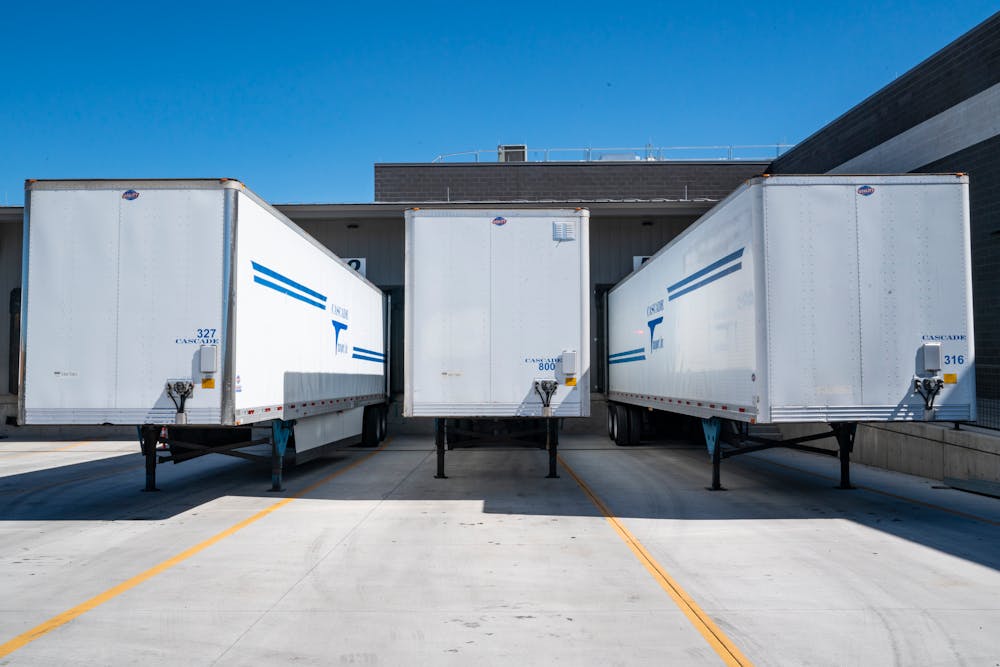Reviews
The Role of Logistics in Business Growth

In today’s competitive business landscape, delivering the right product to the right place at the right time has become more than just a basic function; it’s a key part of growth. Whether a company sells online or through retail, logistics shapes the entire customer experience. From inventory storage to final delivery, every step of the process affects customer satisfaction, cost control, and a company’s ability to scale.
For many businesses, logistics used to be something they thought about only after sales were made. Now, it’s a core part of strategy. Poor logistics can slow down orders, frustrate customers, and limit expansion. On the other hand, smart logistics opens up new markets, builds customer trust, and improves overall operations.
That’s why more companies, both large and small, are investing time and resources into logistics. They’re looking at how to reduce delays, lower costs, and get products into customers’ hands faster. A well-planned logistics setup supports growth by keeping service levels high and operations smooth.
Logistics as a Strategic Asset, Not Just a Function
It’s common to think of logistics as just warehousing or shipping. But it’s more than that. Logistics connects every part of a business—sales, customer service, inventory, and even marketing. When logistics works well, orders are delivered quickly, stock levels stay balanced, and customers stay happy.
Smart logistics planning helps a business move faster and reach more people. A company that wants to expand to new regions needs a reliable way to get products there. This might include working with carriers, setting up local hubs, or using third-party logistics providers. By treating logistics as a growth tool—not just an expense—businesses can create a real advantage.
One example is land freight forwarding, which supports ground-based shipments across regions or borders. This service helps companies move goods efficiently through trucking networks, often providing more flexibility for domestic routes or inland supply chains. For businesses focused on regional fulfillment or working with multiple warehouses, it becomes a practical part of a broader logistics plan. It allows companies to handle large or frequent shipments without the delays and limitations of other transport methods.
This kind of service makes it easier to scale operations across cities or states, giving businesses more control over timing and costs. And since land freight options often work well with warehousing and distribution, they fit neatly into most supply chains.
How Good Logistics Supports Business Growth
Logistics affects more than shipping speed. It influences how customers see a brand. Fast, accurate delivery builds trust. Late or missing packages create problems that can lead to bad reviews or lost sales.
Efficient logistics also cuts unnecessary expenses. When products move smoothly through the supply chain, companies don’t need to spend as much on storage or rush shipping. That means better margins and more money to invest back into the business.
Scaling Operations Through Smarter Logistics
As a business grows, so does the complexity of getting products to the right place. That’s where logistics makes a real difference. A company can’t meet rising demand if its systems are slow or disorganized. Smart logistics helps businesses scale without losing efficiency.
Using regional fulfillment centers, third-party logistics (3PL) providers, or direct-to-customer delivery options allows for faster and more reliable shipping. These solutions reduce the distance between the product and the buyer, helping businesses serve more customers in less time.
Flexible logistics systems also support seasonal growth. If your business sees a spike during holidays or specific months, the ability to shift volume across carriers or warehouses makes it easier to keep up. Without that flexibility, delays can pile up quickly and lead to customer dissatisfaction.
Technology’s Role in Modern Logistics
Technology plays a major part in keeping logistics effective and responsive. With tools like inventory management software and shipment tracking, businesses get real-time visibility into where products are, what’s running low, and what needs attention.
Route optimization software helps save fuel and time for ground shipments. Forecasting tools help predict demand so inventory doesn’t sit too long or run out too early. These tools give businesses the ability to act fast and make decisions based on clear data, not guesswork.
Many platforms also offer customer-facing features. Package tracking links, delivery updates, and estimated arrival windows improve communication. Customers want transparency, and when they get it, they’re more likely to trust the business and come back for future purchases.
For growing companies, using the right tools makes logistics easier to manage. It allows teams to focus on growth strategies instead of solving shipping problems every week.
Challenges Businesses Face Without Strong Logistics
Without strong logistics, it’s hard to build a solid foundation for growth. One common issue is poor inventory visibility. If a business doesn’t know what’s in stock or where items are stored, orders get delayed or canceled. That leads to frustration and lost sales.
Another issue is rising transportation costs. Without a strategy to manage shipping across carriers and regions, businesses may pay more than they need to. Those extra costs cut into profits and limit how far the business can expand.
Delivery mistakes also become more frequent without good systems in place. Wrong addresses, damaged goods, or missed timeframes all affect the customer experience. In a market where customers expect quick, reliable service, even small errors can hurt a brand’s reputation.
These problems slow down growth. They take time to fix and pull focus away from bigger business goals. That’s why investing in logistics, before things break down, is a smart move.
Logistics is more than a support system—it’s part of how a business grows, reaches new customers, and builds loyalty. Companies that treat logistics as a key part of their strategy can scale faster, respond to change more easily, and serve customers with greater consistency.
By improving shipping, storage, and fulfillment processes, businesses create a smoother experience from start to finish. And that’s the kind of foundation growth depends on.

-

 US News5 days ago
US News5 days agoJetBlue flight diverts to Tampa after altitude drop injures at least 15
-

 Breaking News2 hours ago
Breaking News2 hours agoUPS cargo plane crashes into buildings near Louisville airport; injuries reported
-

 World1 week ago
World1 week agoU.S. Navy helicopter and fighter jet crash in South China Sea; all crew rescued
-

 Legal1 week ago
Legal1 week agoMultiple injured in shooting at Lincoln University in Pennsylvania
-

 World2 days ago
World2 days agoStrong 6.3 earthquake strikes northern Afghanistan; felt across Pakistan
-

 World2 days ago
World2 days agoProtesters storm government building in Mexico after killing of local mayor
-

 World3 days ago
World3 days ago10 people stabbed on train in Huntingdon, England
-

 US News6 days ago
US News6 days agoTrump says U.S. will resume nuclear weapons testing ‘on an equal basis’



